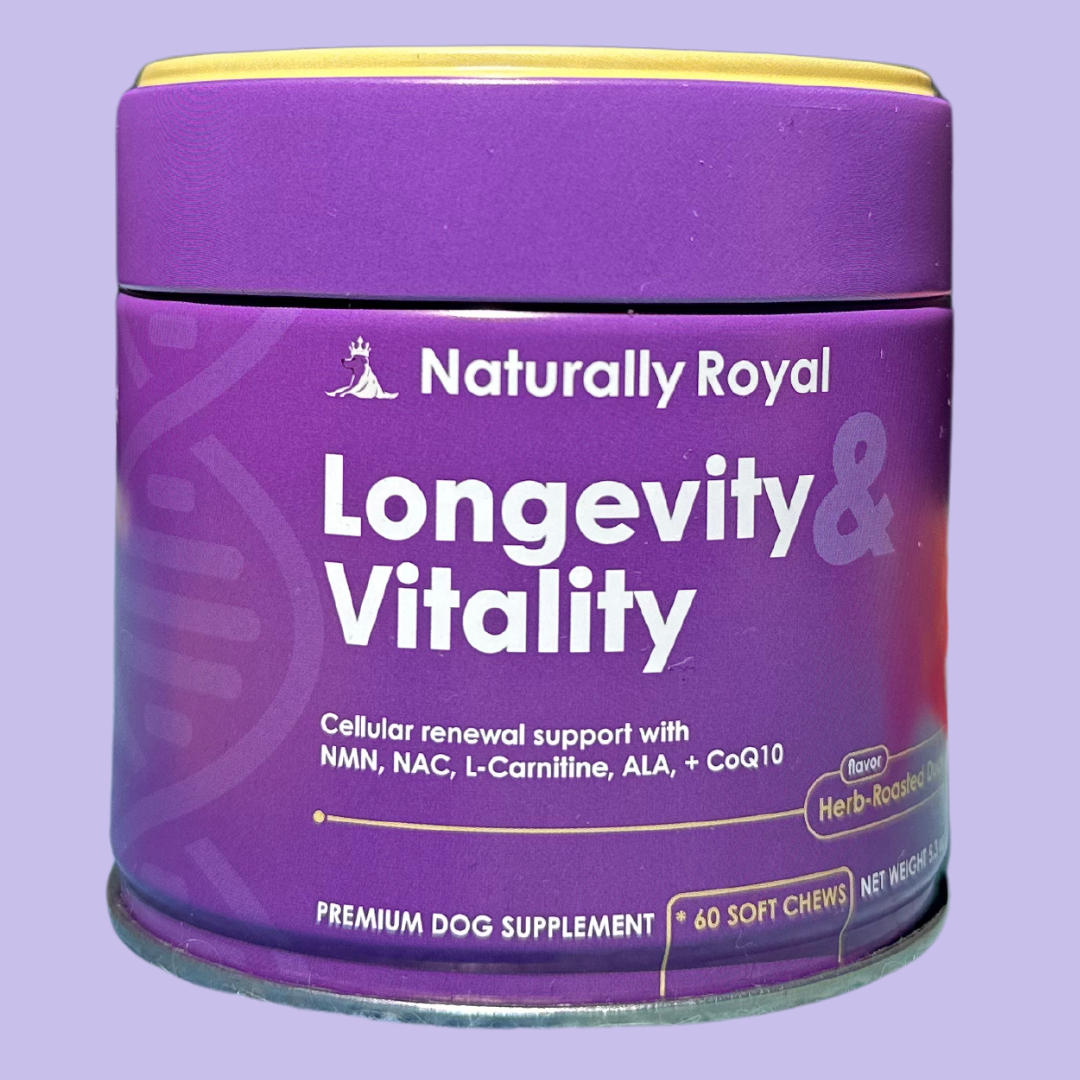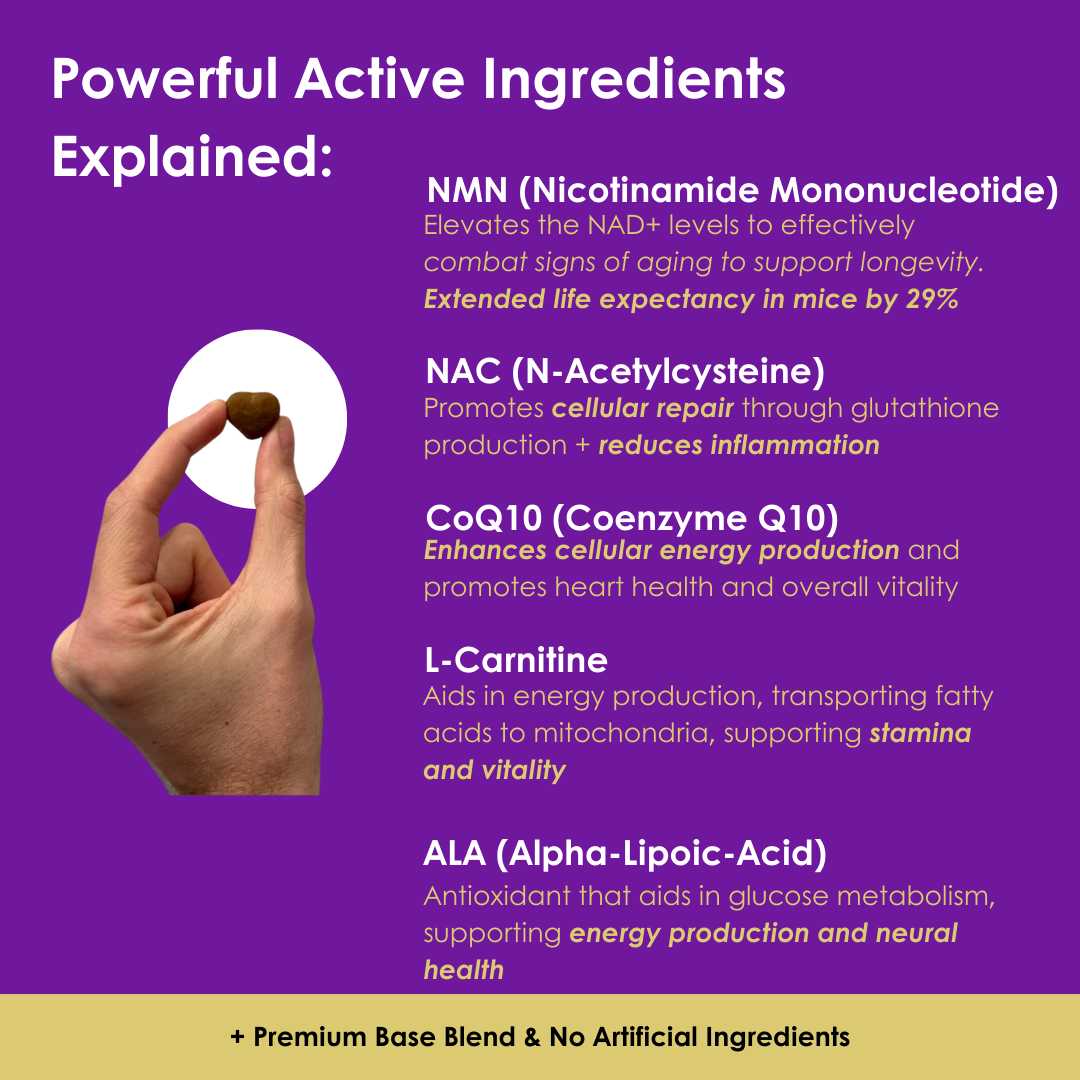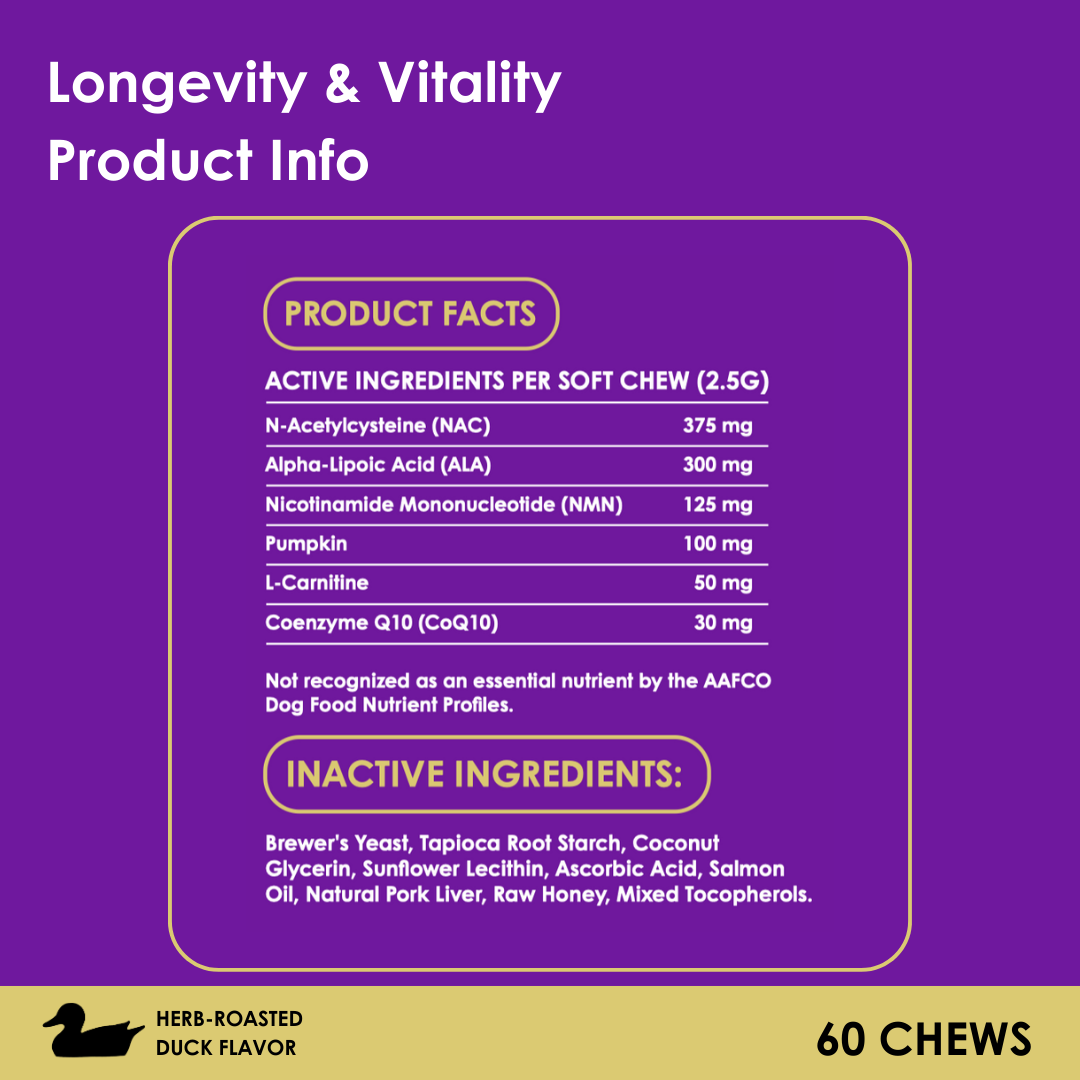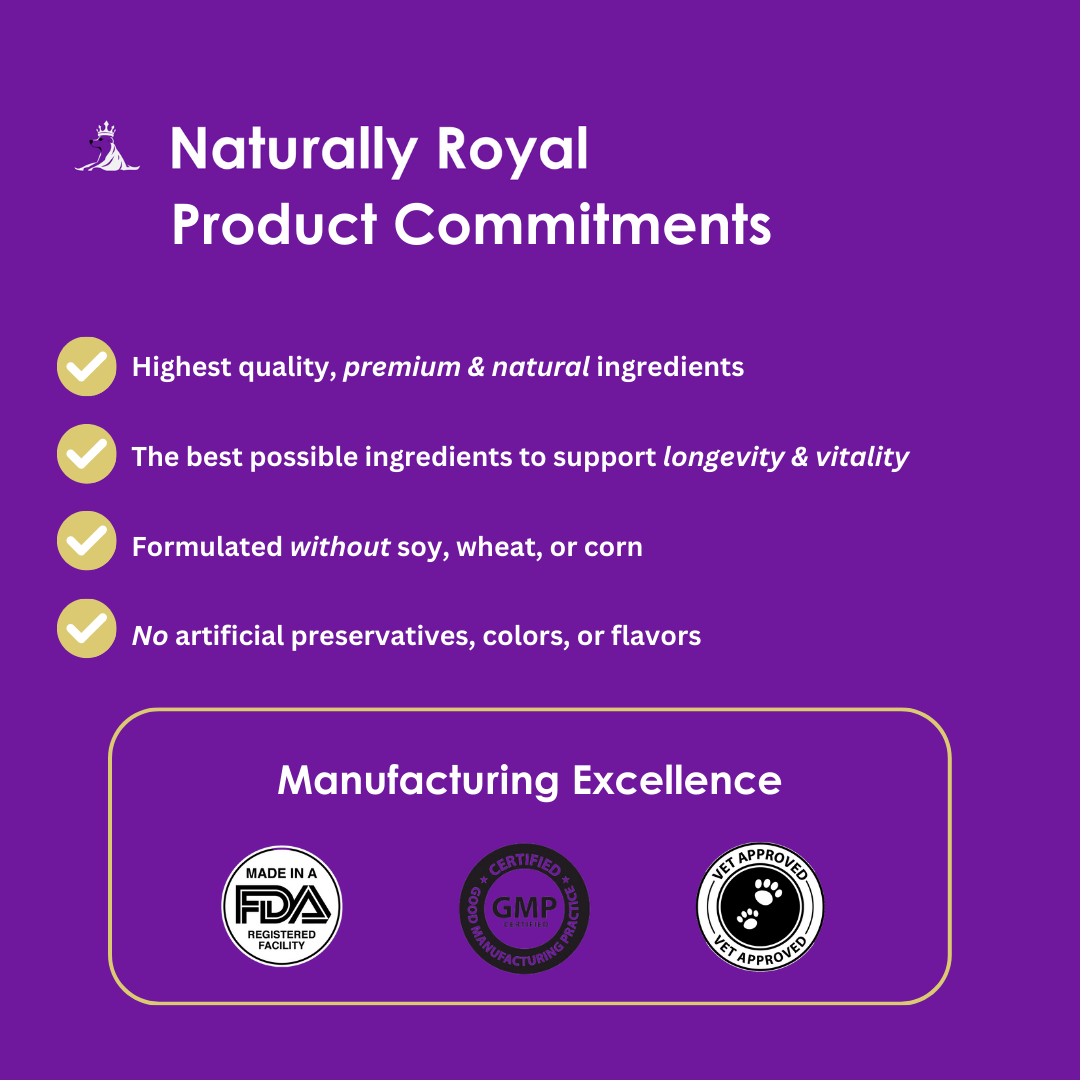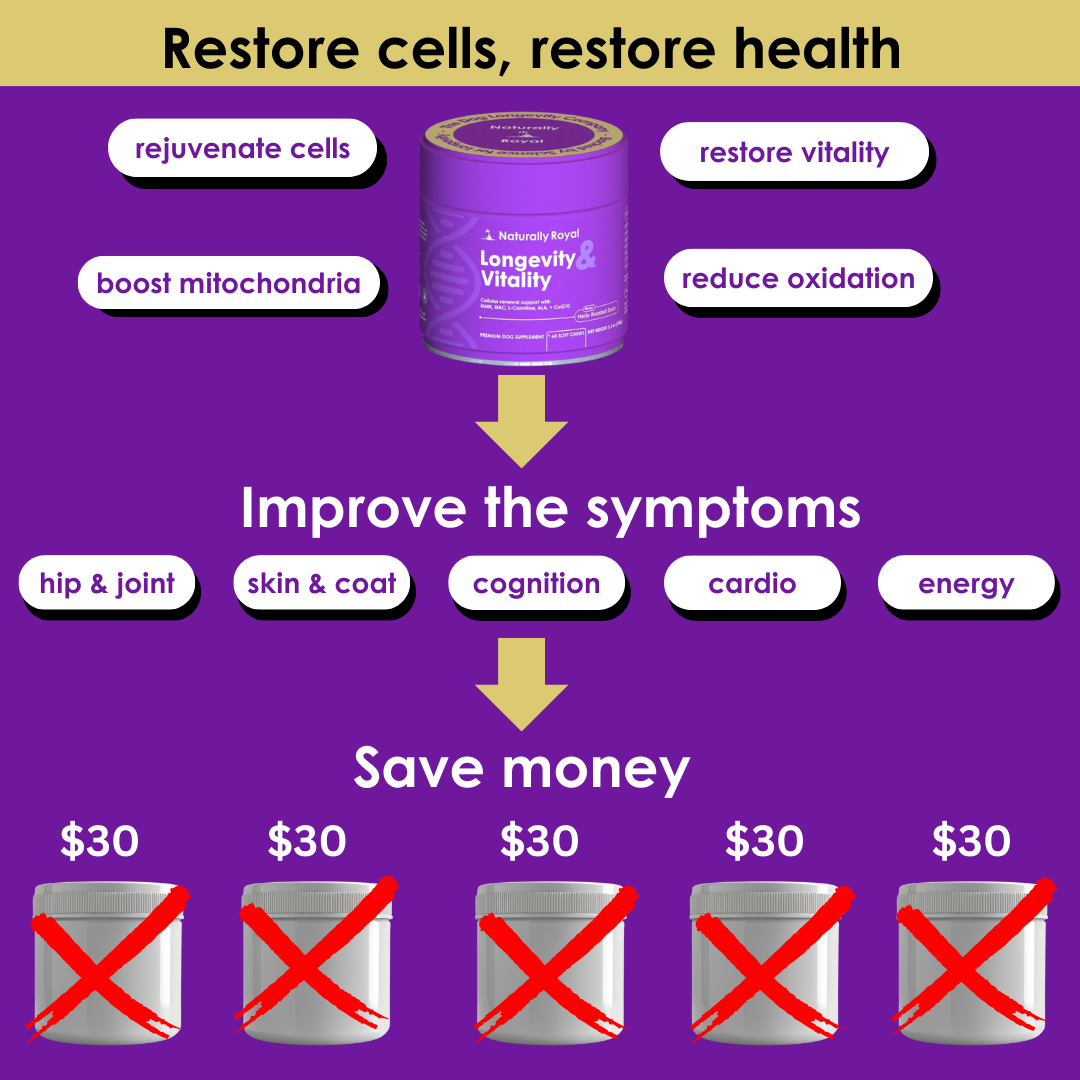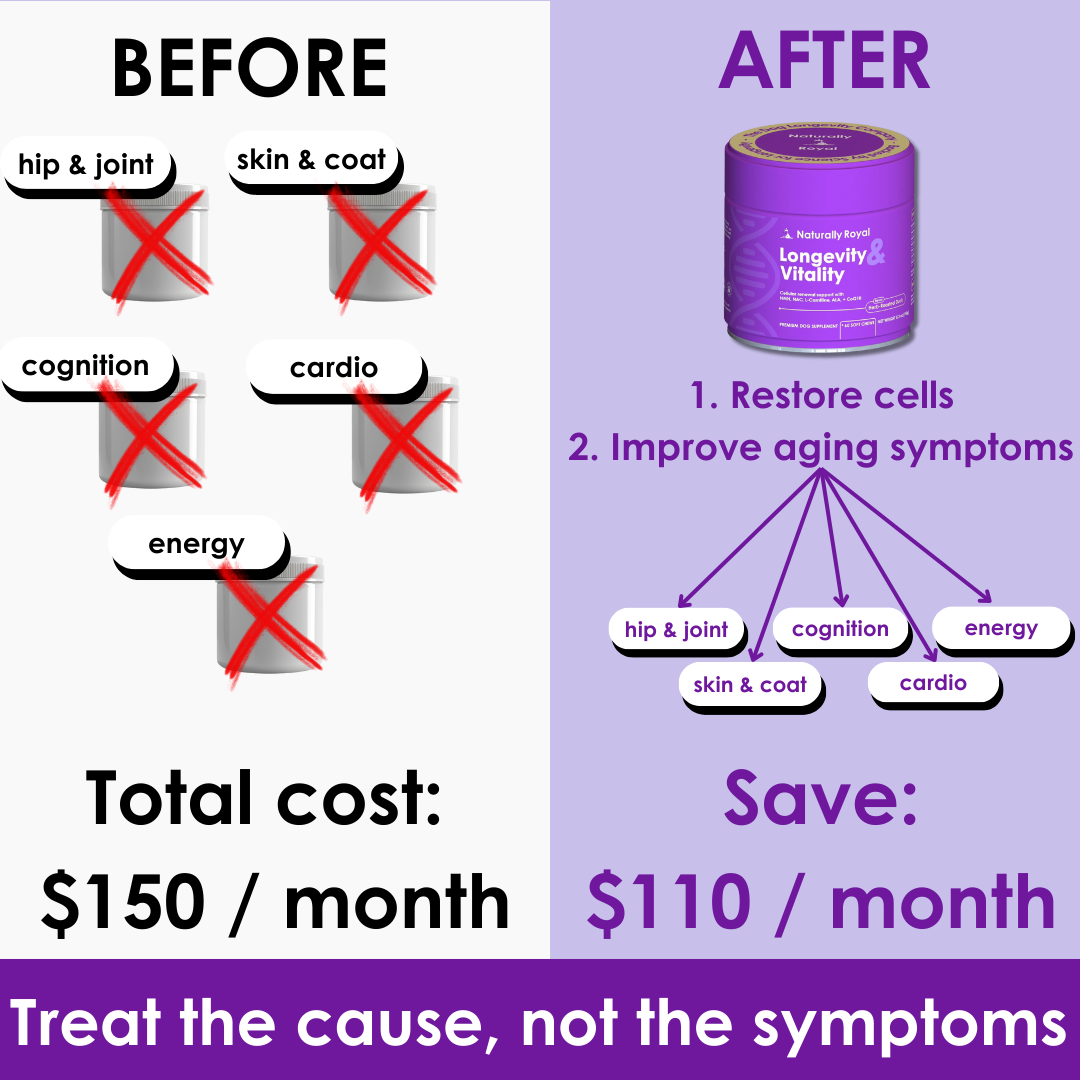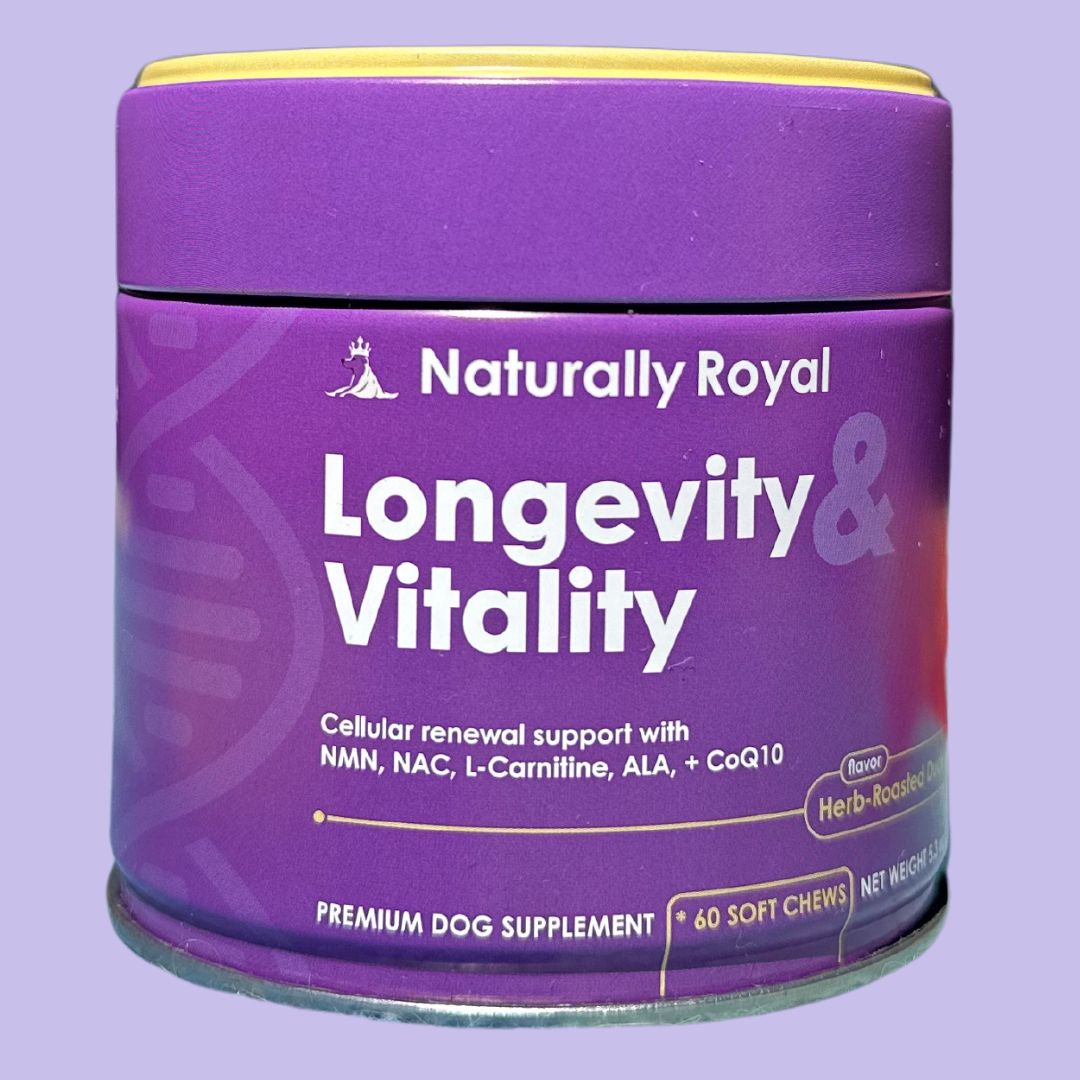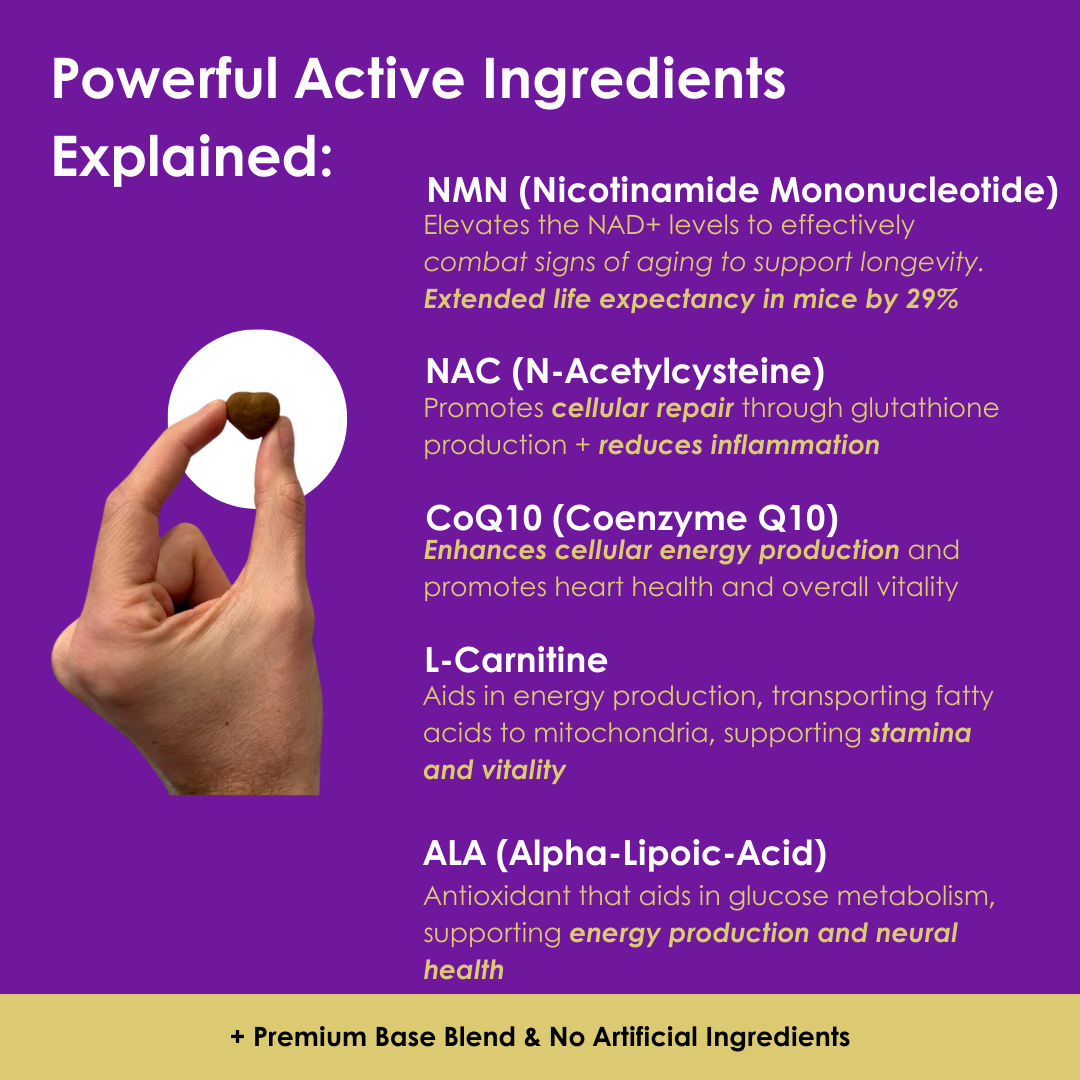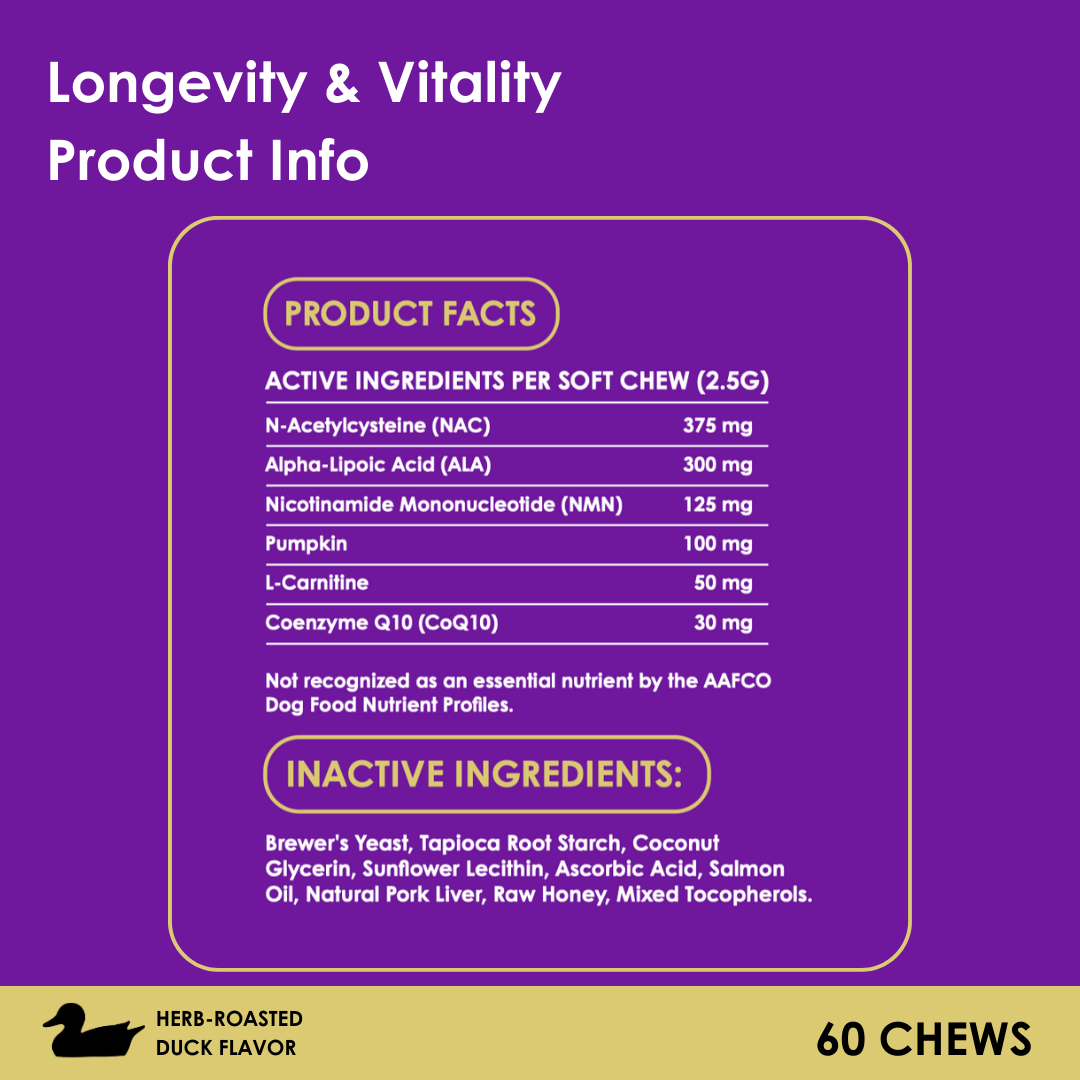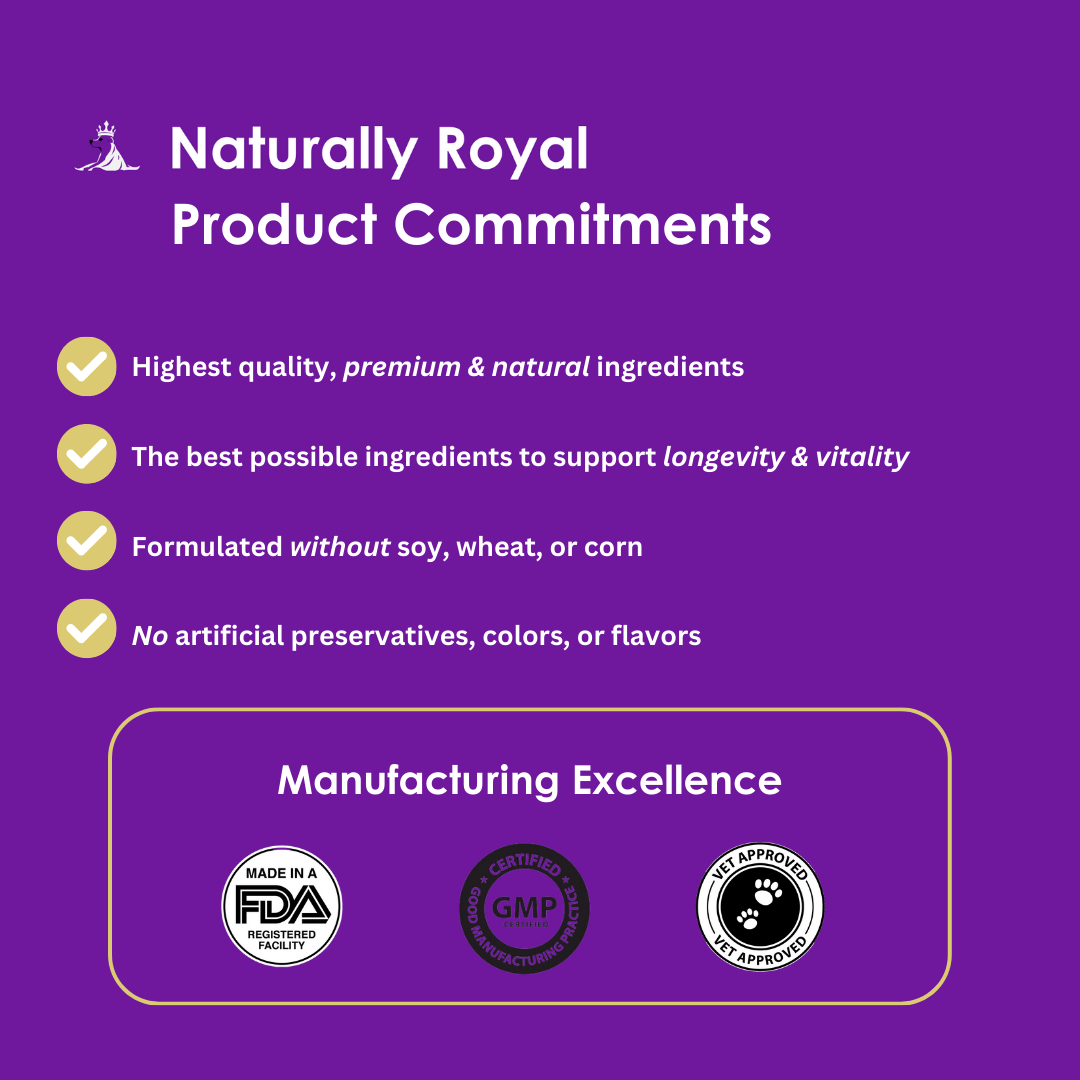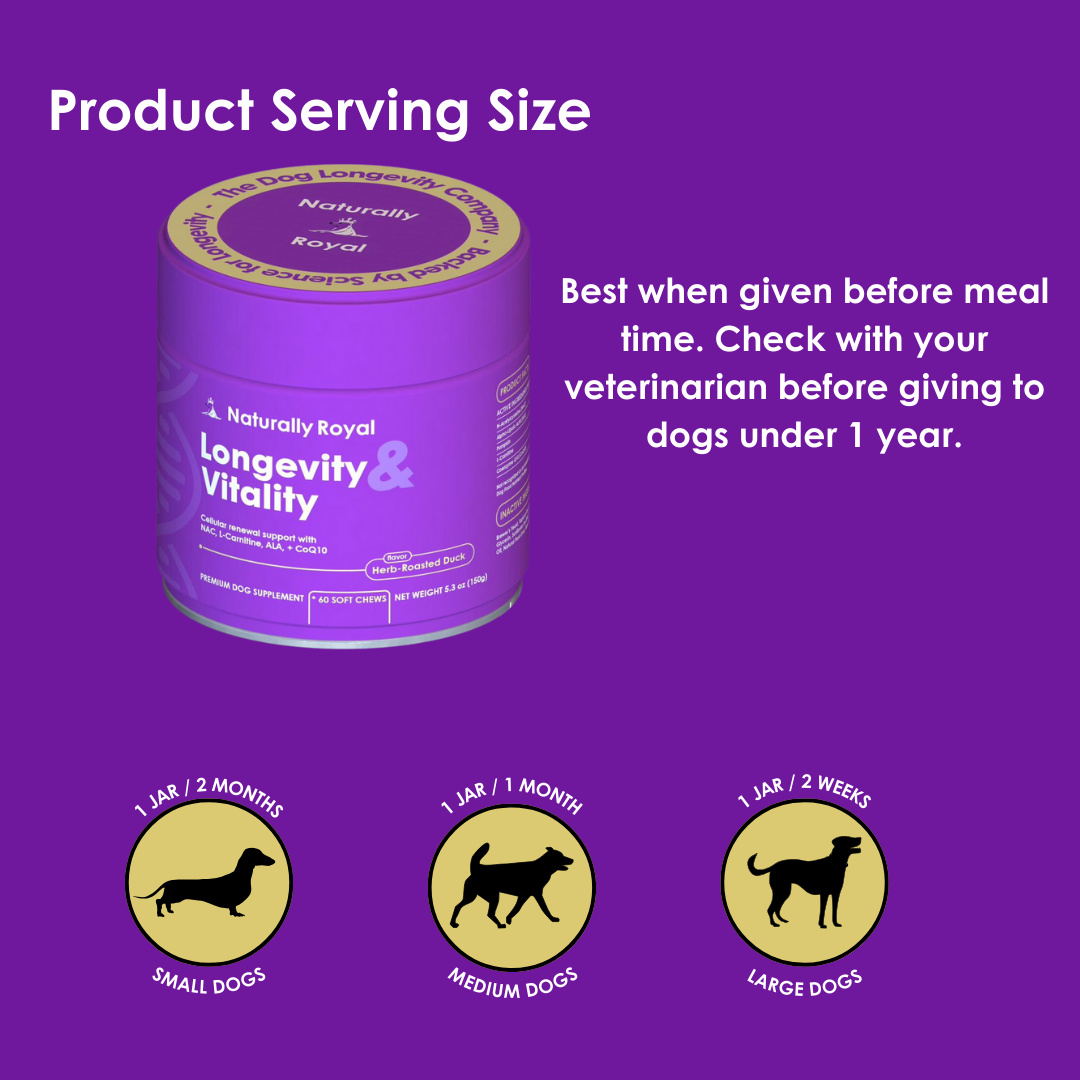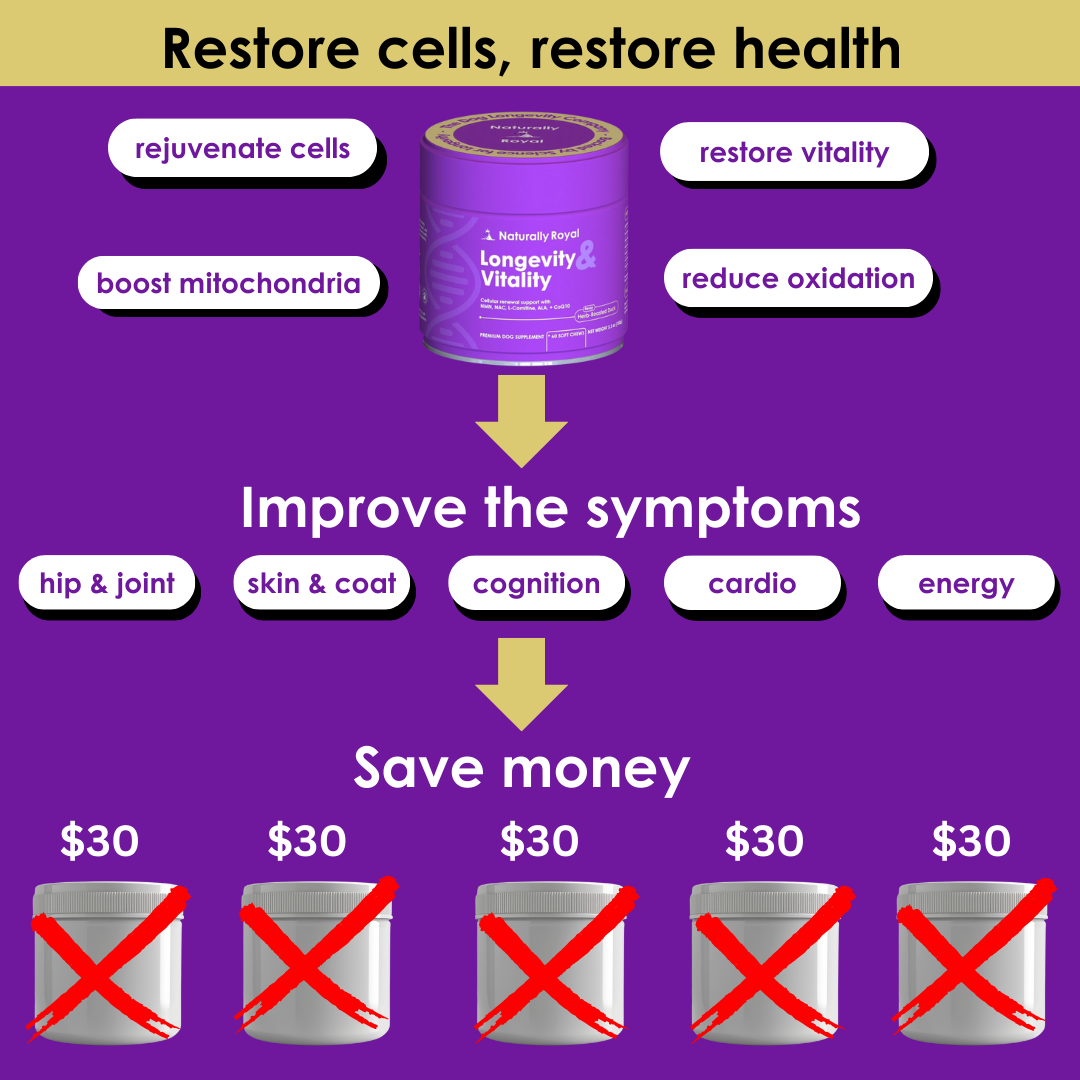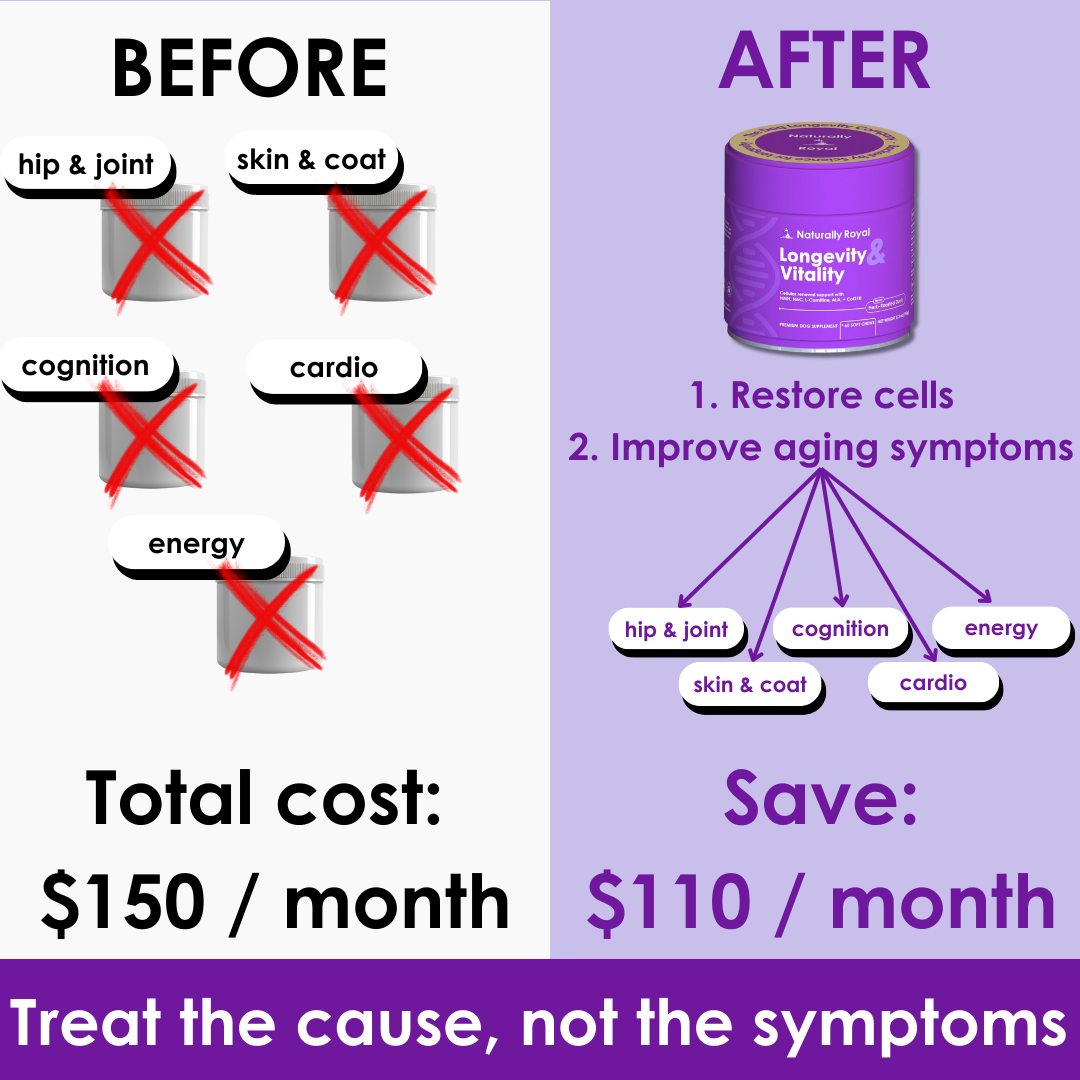Understanding Changing Nutritional Needs with Age
As our dogs age, their nutritional needs evolve. Meeting these changing requirements is crucial to ensuring their health, longevity, and quality of life. Recent studies highlight the specific dietary adjustments needed to support aging dogs effectively. Let's explore how nutritional needs shift as dogs get older and offers practical tips for us to meet these needs:
Key Nutritional Changes in Aging Dogs:
-
Protein and Fat Digestion:
- Observation: Aging dogs often experience a decrease in the efficiency of protein and fat digestion.
- Adjustment: It's essential to provide easily digestible sources of protein and fat to support muscle maintenance and overall health.
-
Intestinal Health and Microbial Diversity:
- Observation: Older dogs tend to show changes in intestinal morphology and a decrease in microbial diversity, which can affect nutrient absorption and immune response.
- Adjustment: Incorporate probiotics and prebiotics into their diet to support gut health and improve nutrient absorption.
-
Nutrient Requirements:
- Observation: The need for certain vitamins, minerals, and amino acids can increase with age to support various bodily functions.
- Adjustment: Ensure the diet includes essential nutrients such as vitamin E, beta-carotene, B vitamins, fatty acids, carnitine, and antioxidants to support immune health, cognitive function, and lean muscle mass maintenance.
Nutritional Interventions for Aging Dogs:
-
High-Quality Protein:
- Why: Protein supports muscle mass, which is crucial for mobility and overall strength in older dogs.
- Sources: Lean meats, fish, and specially formulated senior dog foods.
-
Healthy Fats:
- Why: Fats provide essential fatty acids and help maintain a healthy coat and skin.
- Sources: Fish oil, flaxseed oil, and other omega-3 and omega-6 fatty acid sources.
-
Antioxidants:
- Why: Antioxidants help combat oxidative stress, which can lead to chronic diseases and accelerate aging.
- Sources: Blueberries, cranberries, and antioxidant-rich supplements.
-
Fiber:
- Why: Fiber aids digestion and helps maintain a healthy weight by promoting satiety.
- Sources: Vegetables, whole grains, and fiber supplements designed for dogs.
-
Hydration:
- Why: Adequate hydration is crucial for maintaining kidney health and overall bodily functions.
- Tips: Ensure fresh water is always available and consider incorporating wet food into their diet to increase water intake.
Conclusion:
Understanding and adjusting to the changing nutritional needs of aging dogs is vital for their health and longevity. By focusing on high-quality protein, healthy fats, essential vitamins and minerals, and maintaining gut health, you can support your senior dog's well-being. Regular veterinary check-ups and tailored dietary plans can further enhance their quality of life as they age.


